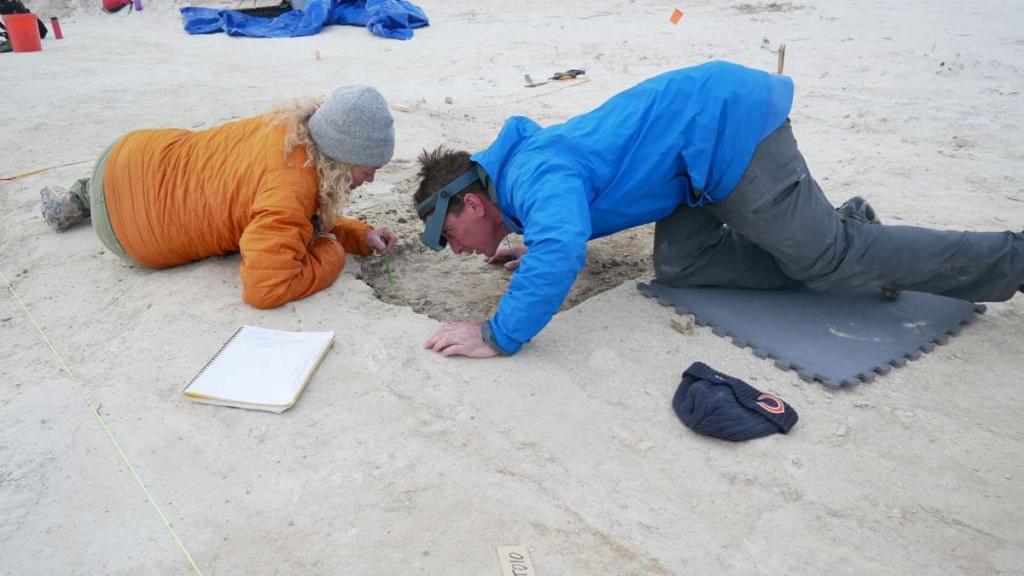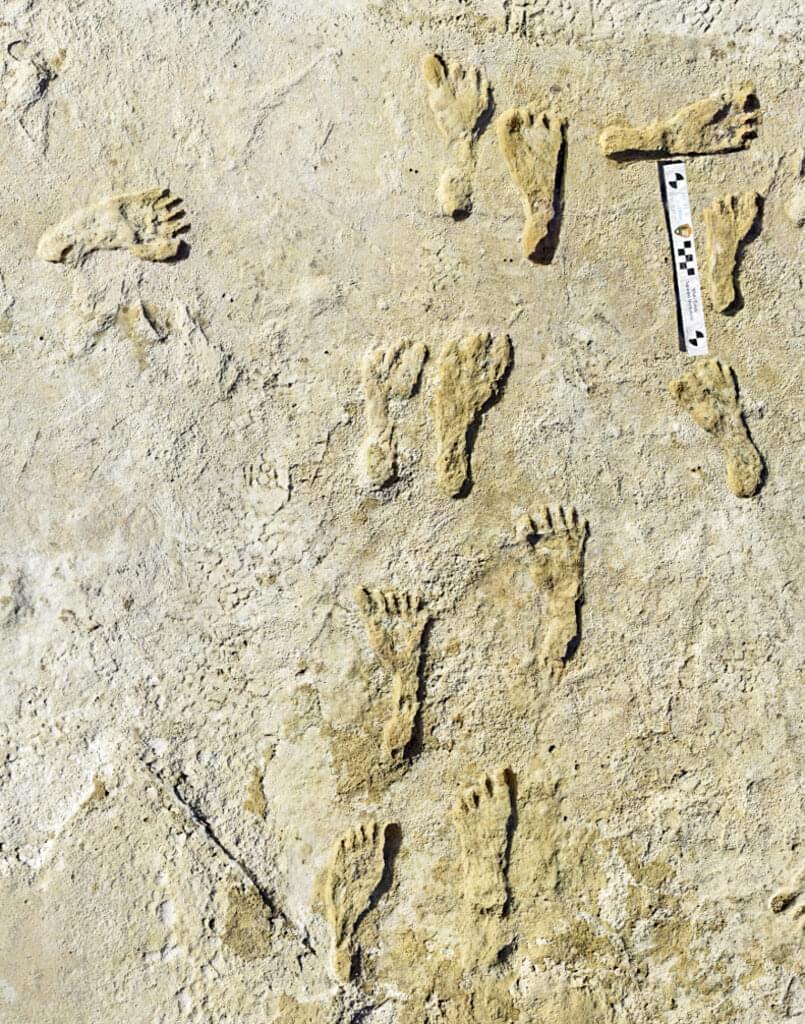When Did Humans Actually Arrive In The Americas?

Kathleen Springer and Jeff Pigati, researchers with the United States Geological Survey, who are analyzing footprints that indicate humans inhabited North America much earlier than scientists thought. Kathleen Springer
For decades, archeologists have debated when humans first set foot in North America. Now, ancient footprints discovered in New Mexico are offering some clues to when people first inhabited the continent we call home, which could alter the widely accepted timeline for when humans first lived in North America by thousands of years. We talked about it with two research geologists from the U.S. Geological Survey.
GUESTS:
Kathleen Springer
Research Geologist, U.S. Geological Survey (USGS) | Geosciences and Environmental Change Science Center
Jeffrey Pigati
Research Geologist, U.S. Geological Survey (USGS)

This undated photo made available by the National Park Service in September 2021 shows fossilized human fossilized footprints at the White Sands National Park in New Mexico. According to a report published in the journal Science on Thursday, Sept. 23, 2021, the impressions indicate that early humans were walking across North America around 23,000 years ago, much earlier than scientists previously thought. (NSP/AP)
Footprints found in New Mexico date back to the Ice Age, a study found, suggesting humans arrived in the Americas before the glaciers melted. https://t.co/QZ9hGwjuml
— The New York Times (@nytimes) September 23, 2021
Prepared for web by Owen Henderson
Help shape our coverage on The 21st by joining our texting group and answering weekly questions. To join, text “TALK” to 217-803-0730 or sign up with your phone number below:
